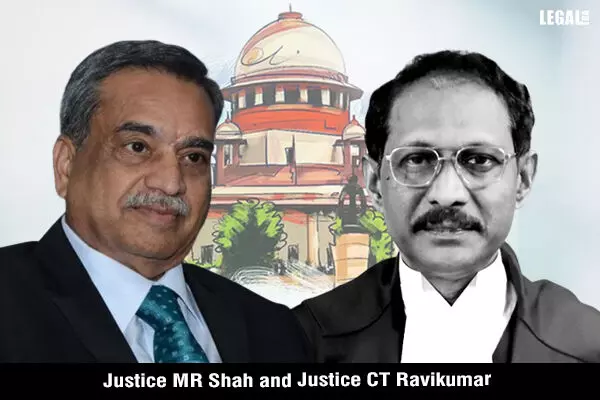- Home
- News
- Articles+
- Aerospace
- Artificial Intelligence
- Agriculture
- Alternate Dispute Resolution
- Arbitration & Mediation
- Banking and Finance
- Bankruptcy
- Book Review
- Bribery & Corruption
- Commercial Litigation
- Competition Law
- Conference Reports
- Consumer Products
- Contract
- Corporate Governance
- Corporate Law
- Covid-19
- Cryptocurrency
- Cybersecurity
- Data Protection
- Defence
- Digital Economy
- E-commerce
- Employment Law
- Energy and Natural Resources
- Entertainment and Sports Law
- Environmental Law
- Environmental, Social, and Governance
- Foreign Direct Investment
- Food and Beverage
- Gaming
- Health Care
- IBC Diaries
- In Focus
- Inclusion & Diversity
- Insurance Law
- Intellectual Property
- International Law
- IP & Tech Era
- Know the Law
- Labour Laws
- Law & Policy and Regulation
- Litigation
- Litigation Funding
- Manufacturing
- Mergers & Acquisitions
- NFTs
- Privacy
- Private Equity
- Project Finance
- Real Estate
- Risk and Compliance
- Student Corner
- Take On Board
- Tax
- Technology Media and Telecom
- Tributes
- Viewpoint
- Zoom In
- Law Firms
- In-House
- Rankings
- E-Magazine
- Legal Era TV
- Events
- Middle East
- Africa
- News
- Articles
- Aerospace
- Artificial Intelligence
- Agriculture
- Alternate Dispute Resolution
- Arbitration & Mediation
- Banking and Finance
- Bankruptcy
- Book Review
- Bribery & Corruption
- Commercial Litigation
- Competition Law
- Conference Reports
- Consumer Products
- Contract
- Corporate Governance
- Corporate Law
- Covid-19
- Cryptocurrency
- Cybersecurity
- Data Protection
- Defence
- Digital Economy
- E-commerce
- Employment Law
- Energy and Natural Resources
- Entertainment and Sports Law
- Environmental Law
- Environmental, Social, and Governance
- Foreign Direct Investment
- Food and Beverage
- Gaming
- Health Care
- IBC Diaries
- In Focus
- Inclusion & Diversity
- Insurance Law
- Intellectual Property
- International Law
- IP & Tech Era
- Know the Law
- Labour Laws
- Law & Policy and Regulation
- Litigation
- Litigation Funding
- Manufacturing
- Mergers & Acquisitions
- NFTs
- Privacy
- Private Equity
- Project Finance
- Real Estate
- Risk and Compliance
- Student Corner
- Take On Board
- Tax
- Technology Media and Telecom
- Tributes
- Viewpoint
- Zoom In
- Law Firms
- In-House
- Rankings
- E-Magazine
- Legal Era TV
- Events
- Middle East
- Africa
In case Insurance Company is unable to repair insured property, it has to Pay Reinstatement Value Of Goods Damaged: Supreme Court

In case Insurance Company is unable to repair insured property, it has to Pay Reinstatement Value Of Goods Damaged: Supreme Court
The Supreme Court observed that the insurance company would be liable to pay the reinstatement value of the insured property if it is unable to reinstate or replace the damage or destroyed property.
The Apex Court was hearing an appeal which challenged the decision passed by the National Consumer Disputes Redressal Commission (in short NCDRC) which had held that the insurance company shall be liable to pay only Rs. 12.6 lakh (deprecated value) instead of Rs. 29.17 lakh (reinstatement value).
According to the appellant- M/s Oswal Plastic Industries received a fire policy with effect from 2 July, 2009. On 17 October, 2009, a fire broke out in the factory premises of the appellant resulting in loss of material, stock, and machinery of the value Rs. 76.64 lakh.
The insurance company had appointed a surveyor and according to him the loss on reinstatement value basis at Rs. 29.17 lakh and on depreciated value was at Rs. 12.6 lakh. The insurance company despite the reports of the surveyor rejected the claim.
Aggrieved by the same, the appellant had moved to the State Consumer Disputes Redressal Commission, (in short SCDRC) seeking claim of Rs. 76.64 lakh with interest. Nevertheless, the SCDRC placed its reliance upon the surveyor report and the loss assessed by him based on reinstatement value awarded the sum of Rs. 29.17 lakh with nine per cent interest.
The insurance company filed an appeal before the NCDRC against the same which had allowed the appeal and modified the order passed by the State Commission. It awarded Rs. 12.6 lakh¬ along with interest at seven per cent instead of Rs. 29.17 lakh on the ground that the appellant shall be entitled to the depreciated value and not the reinstatement value.
Aggrieved by the same, the appellant filed an appeal before the Top Court.
The division bench comprising of Justices MR Shah and CT Ravikumar noted that as per the true interpretation of insurance policy, two options were given to the insurance company- First, it could reinstate or replace property damaged or destroyed instead of paying the amount of loss or damage; or second, it could pay such sum as would be requisite to reinstate or repair such property.
The Apex Court opined that the aforementioned case fell under the second category and, therefore, held that the insurance company shall be liable to pay the reinstatement value of the property insured to repair such property.
While upholding the order passed by the SCDRC, the Top Court observed that, "as per second part of Clause 9 of Section 2 of the policy, the complainant shall be entitled to the reinstatement value and not the depreciated value. The NCDRC has mis¬interpreted and mis-read the Clause 9. The NCDRC has seriously erred in observing and holding that the insurance company shall be liable to pay the depreciated value only and not the reinstatement value. The State Commission was absolutely justified in awarding the reinstatement value," while allowing the appeal.



